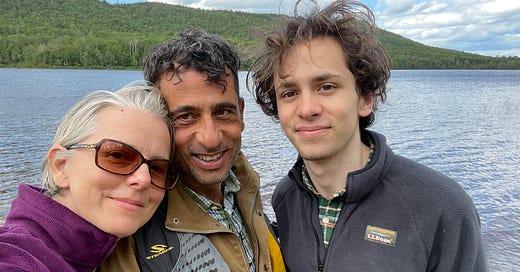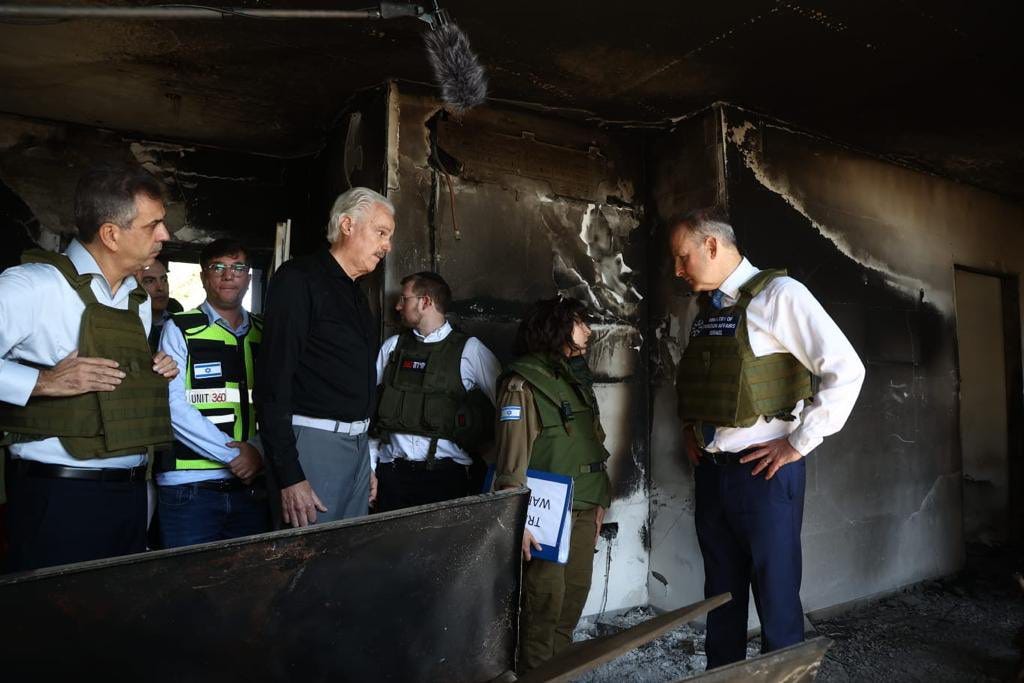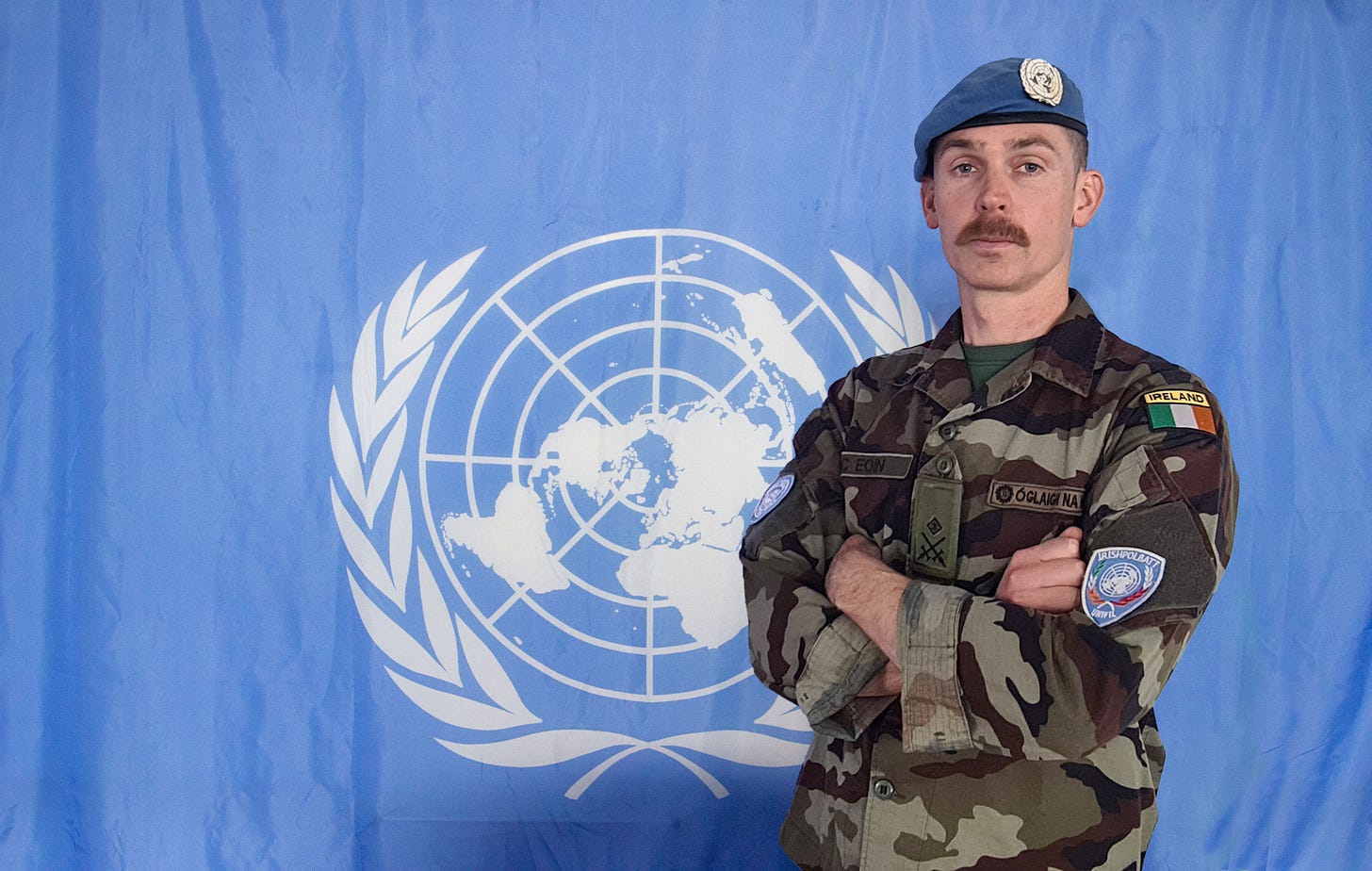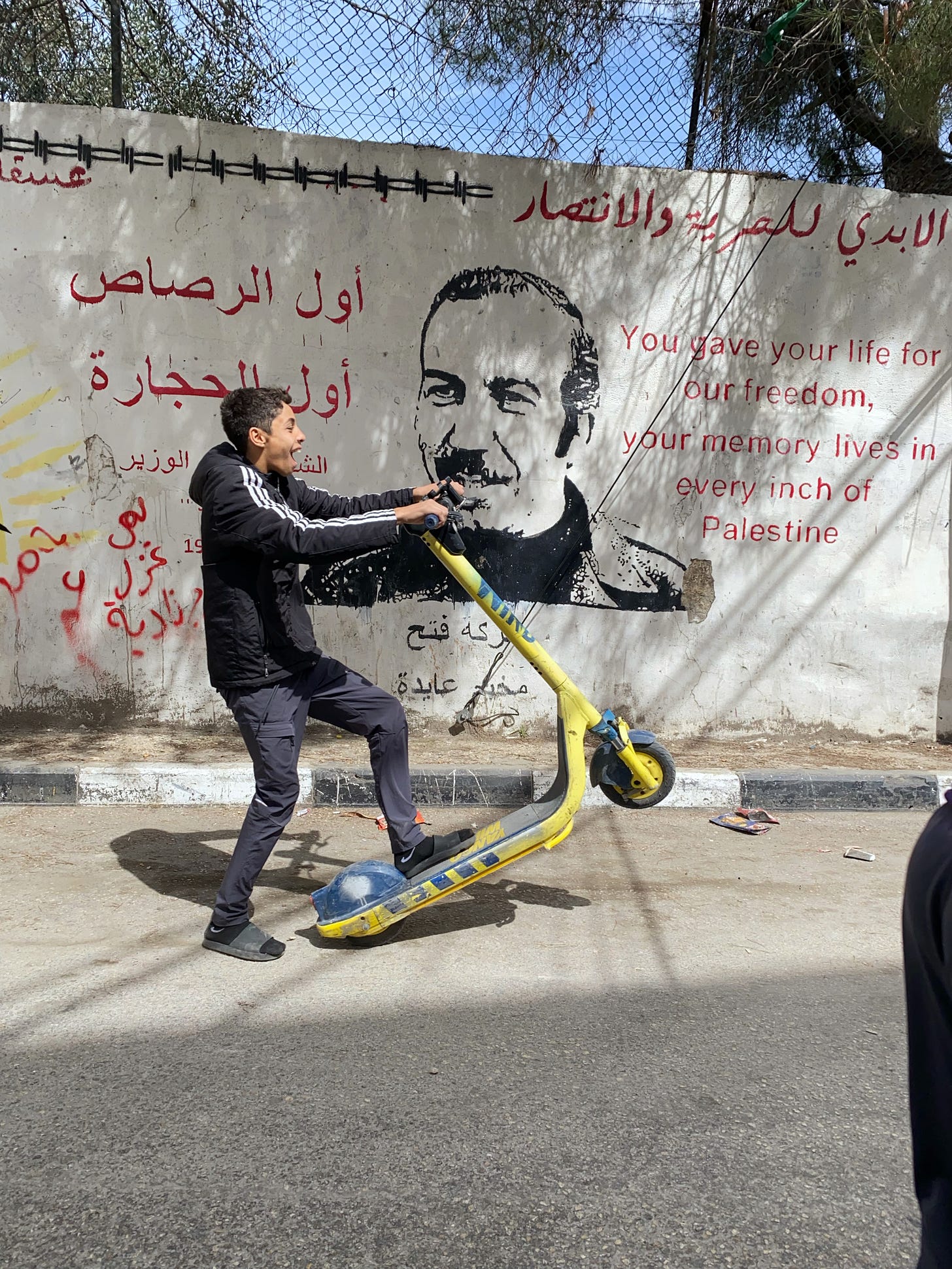Betweenmas / Gaza / Christian Evangelicals and Israel / Irish peacekeepers in Southern Lebanon
Happy betweenmas from Dublin,
This morning I spoke to Monocle and Stefanie Preissner about the latest on the war in Gaza including negotiations over a second hostage deal, how the conflict has rippled across the region and why the US and Netanyahu are increasingly at odds in terms of their long term vision for Gaza after the war.
Earlier this month, I spoke with the parents of Hisham Arwatani, the 20-year-old Palestinian-Irish-American student who was shot and paralysed in gun attack in Vermont over Thanksgiving. He was targeted by a lone gunman along with two other Palestinian students, two of whom were wearing the traditional keffiyeh from Palestine.
I also wrote about an unexpected guest on Tánaiste Michael Martin’s visit to southern Israel last month. The controversial American evangelical pastor Mike Evans - previously criticised for targeting Jews for conversion to christianity in 1980s - appeared by the side of Israeli Foreign Minister Eli Cohen as an Irish delegation toured Sderot and Kibbutz Be’eri near the Gaza border. You can read about the influence of American evangelicals on US policy on Israel here.
While in Lebanon earlier this month, I interviewed Lt Col Stephen MacEoin, the commander of the Irish troops currently serving with Unifil in south Lebanon, where exchanges between Hezbollah and Israeli forces continue to escalate and casualties are rising.
I also gave a report on Christian Palestinian refugees in Lebanon for RTE World Report. You can listen back here or read the text below.
For anyone who hasn’t been to Bethlehem, I posted a thread on X of photos and videos from a visit to Aida Camp earlier this year.
The site in the Armenian Quarter of the Jerusalem’s old city which I reported on in November was attacked again by 30 armed individuals. You can watch a video of Armenian priests trying to protect the site and being assaulted.
While I was in Lebanon I also spoke with other journalist about how difficult they’d been finding the online outrage and attacks on their reporting covering the highly polarised Israel-Palestinian conflict. I highly recommend reading So You’ve Been Publicly Shamed for an insight into what’s like being at the centre of a Twitter/media pile on and also How to Do Nothing to think more about what type of online eco system we want.
Some articles I think are worth reading this week
Who are the Houthi rebels and why are they attacking Red Sea ships? by the BBC
Masha Gessen’s acceptance speech for the Hannah Arendt Political Writing Award in Germany
A General’s Dilemma section - The Day Hamas Came by The New York Times
Hope everyone has a healthy and more hopeful 2024,
Hannah
Palestinian Christians in Lebanon, RTÉ World Report
North of Beirut, lying under the shadow of the Matn hills, lies the town of Dbayeh. It’s near the US embassy where hundreds of people amassed recently in protest over America’s support for Israel’s campaign against Hamas in Gaza - the Palestinian enclav lies just 300 km south of Beirut, along the Mediterranean coastline.
Inside Dbayeh is one of the smaller and less well-known camps for Palestinian refugees, who came by foot to Lebanon after being expelled from their homes in 1948 when the state of Israel was formed.
Dotted with occasional signs from Unrwa, the UN agency responsible for Palestinian refugees, the Dbayeh refugee camp consists of four parallel streets on land owned by the local Maronite monastery - who over 70 years ago extended help to fellow Christians who were expelled from Palestine.
While most Palestinians are Sunni Muslims a small minority are Christian, coming from a variety of different churches. Today, there are estimated to be between 800,000 and 1 million Palestinian Christians worldwide. In Israel and the occupied Palestinian territories, there are close to 200,000 Palestinian Christians.
The Palestinians in Dbayeh are Maronite and Greek Orthodox Christians, originally from villages along the Galilee Sea. After being expelled from their homes in 1948, Palestinians often grouped with members of their original villages and towns to live in refugee camps in Syria, Lebanon and Jordan. Meanwhile, in the new state of Israel, many Christian churches struggled with the loss of 70 per cent of their congregation and closed down in the aftermath of 1948.
The influx of many Palestinian refugees into Lebanon also affected the fragile demographics of the country whose political power is divided along sectarian lines. The thin majority that Lebanese Christians held in the country had been eroded by outward migration under the Ottoman and French occupation and some Lebanese Christian parties saw the influx of 40,000 Palestinian Christians as an opportunity to reinforce their numbers. They lobbied the government to grant around 31,000 Palestinian Christians Lebanese citizenship after 1948.
But not all Palestinian Christians received citizenship including those living in Dbayeh, although some have since secured citizenship through marriage to Lebanese. Without Lebanese citizenship, Palestinians in Lebanon face widespread discrimination, are barred from several professions and cannot own land.
“Refugees of Dbayeh Camp are caught in a no man’s land of identity,” says historian Jihane Sfeir. “They are marginalized by the Palestinian refugee community and by the Lebanese population.”
Memories in Lebanon still linger from the civil war which saw Palestinian and Christian factions engage in bloody fighting, during which civilians were routinely targeted and rape and torture were common. Many Christian communities in Lebanon still harbour resentment towards Palestinians and vice versa. But in Dbayeh mutual concerns over survival in Lebanon’s struggling economy have united Lebanese and Palestinian Christians.
The war in Gaza has focused attention on the plight of Palestinians once again,
In Lebanon, church leaders have both condemned what they call the “licence to kill" Palestinians that has been given by the west to Israel and the "atrocities" committed by Hamas against civilians. The head of the Lebanese Maronite Church,Patriarch Bechara Boutros Al-Rai, says that "the only practicable solution is that of two states, with the maintenance of a special status for Jerusalem.”
As Christmas approaches, many Palestinian Christians in Lebanon wish they could make a pilgrimage to Bethlehem in the occupied West Bank, where Jesus was born according to the new testament. Or pray at the Church of the Holy Sepulchre, in the old city of Jerusalem which has been occupied since 1967. Today, Palestinian Christians in Lebanon are effectively barred from attending either of these holy sites without special permission from the Israeli authorities, forever changing the ancient traditions practised by the generations before them.
This year in in the Lutheran Church in Bethlehem, the manger features a baby Jesus surrounded by rubble to reflect the devastation in Gaza. The Church’s pastor, Reverend Munther Isaac, said that the manger scene was “inspired by the difficult images we see daily on our television screens of children being pulled from under the rubble in Gaza.”
While the war on Gaza continues, there will be few Christmas celebrations among Palestinian Christians this year. “It’s impossible to celebrate with what is happening in Gaza,” says the Reverend Isaac. “There will be no street parades, no Christmas lights, nothing this year.”
For World Report, I’m Hannah McCarthy in Beirut.







